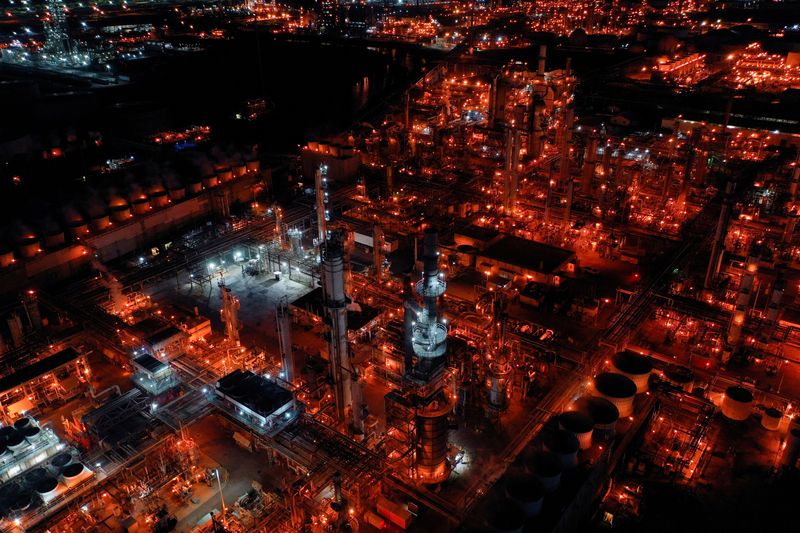Investing.com’s stocks of the week
By Arunima Kumar
(Reuters) - Marathon Petroleum (NYSE:MPC) beat estimates for third-quarter profit on Tuesday as demand for refined fuel soared amid already-tight supplies, sending the top U.S. refiner's shares 1.5% higher in afternoon trade.
"Both domestically and within our export business, we are seeing steady demand year-over-year across gasoline and diesel and demand for jet fuel continues to grow," CEO Michael Hennigan said on call.
Demand for refined products remained high during the quarter after voluntary production cuts from top OPEC+ oil producers Saudi Arabia and Russia, low levels of crude stockpile in the United States and increased exports kept supplies tight.
Marathon said crude capacity utilization was 94%, resulting in a total throughput of 3 million barrels per day (bpd) for the reported quarter. It expects a total refinery throughput of 2.89 million bpd for the fourth quarter.
"We pulled forward turnaround work into the third and fourth quarters, which had been scheduled in the first quarter of 2024," added CFO Maryann Mannen.
Third Bridge analyst Peter McNally said the "fourth quarter will be heavier on maintenance across the Marathon refining system, leading to lower utilization, particularly on the West Coast... the financial outlook for Marathon remains strong despite the weaker refining margin outlook in recent weeks."
The refining and marketing margin for the July-September quarter fell 13.4% to $26.16 per barrel, but was above several brokerages' expectations.
Oil prices, which have eased from last year's highs that were driven by the Russia-Ukraine conflict, squeezed margins for U.S. refiners in the reported quarter.
Rivals Valero Energy (NYSE:VLO) and Phillips 66 (NYSE:PSX) also reported a hit from lower refining margins on their quarterly results.
Marathon reported an adjusted net income of $8.14 per share, cruising past analysts' average estimate of $7.75 per share, according to LSEG data.
The company last week also increased its quarterly dividend by 10% and announced an additional $5 billion share repurchase program.
